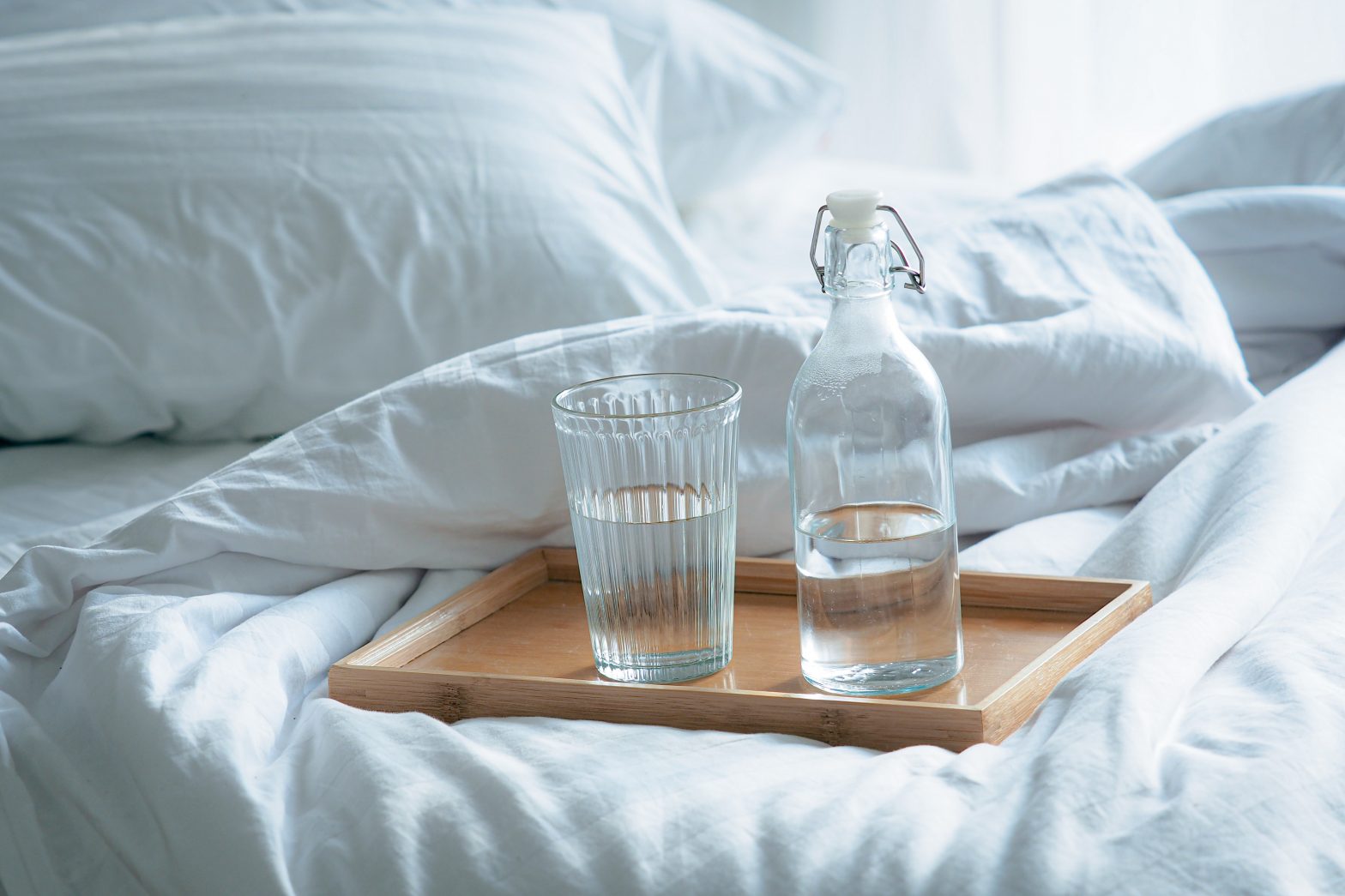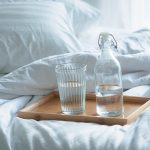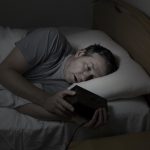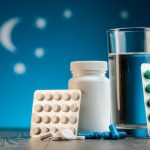The Importance of Hydration for a Good Night’s Sleep
Posted by Jessica Penner

Out of the many techniques you can use to get a better night’s sleep, you have to start somewhere. You have to choose one and build on that. So start with an easy one!
I’m happy to suggest one very SIMPLE thing you can do quite easily: drink more water!
Sleep and hydration are intimately connected. Your hydration status can affect your sleep, while a lack of sleep can cause you to become more dehydrated! It can become a vicious cycle.
Being dehydrated can lead to:
- A dry mouth and nasal passageways. This can cause snoring that may disrupt your sleep, and give you a sore throat in the morning. If you have a sleeping partner, this can affect their sleep too!
- Leg cramps, which can keep you awake and prevent you from getting restorative sleep
How does a lack of sleep cause you to become dehydrated? During the latter hours of sleep, your body produces more vasopressin, a hormone that puts the brakes on your kidneys’ urine production. So, if your sleep gets cut short, you could be missing out on this key section of your sleep cycle!
The easiest way out of this tiresome cycle is to simply prevent yourself from becoming dehydrated!
Not only will it affect your sleep, dehydration can also directly affect you during the day, making you sleepy, lethargic, and cloudy-minded.
As you can see, fluids are super important for both a restful night and an alert day!
How Much, How Often?
You might think you can cram for this exam by chugging down a bunch of fluids just before bed. But that’s only going to make you wake up and use the toilet!
Instead, focus on keeping yourself hydrated throughout the day.
Women need around 9 cups of hydrating beverages each day while men need 12.5 cups.
Here’s an easy two step plan for staying hydrated:
Step One: When you wake up, drink a big glass of water to replenish your water loss from the night. Even in your sleep, your body is using up your fluid stores!
If you don’t love plain water first thing in the morning, try hot water with lemon!
Step Two: For the rest of the day, keep a cup or water bottle beside you and sip on it continuously. Alternatively, set an alarm on your phone each hour and drink a cup whenever it goes off.
For somebody who is awake 16 hours of the day:
- A woman should drink a large glass upon waking and then aim for at least ½ cup each hour until bedtime
- A man should drink a large glass upon waking and then aim for at least ¾ cup each hour until bedtime
What Type of Fluids Count?
If your diet contains the recommended daily dose of produce, you’ll get 15-20% of your fluid needs from the food you eat. Fruits and vegetables contain a lot of fluid. Carrots are more than 80% water, and celery is over 90% water!
The rest needs to come from hydrating beverages, ie: fluids that aren’t going to cause you to pee out more fluid than you take in!
Hydrating fluids include:
- Water (still or sparkling)
- Milk (dairy or non-dairy alternative)
- Juice
- Broth
- Herbal teas
- Coffee and caffeinated teas, if you’re a regular drinker*
*If you regularly drink caffeinated drinks, your body becomes habituated to the caffeine, and it doesn’t actually cause you to pee more!
Dehydrating fluids include:
- Alcohol
- Coffee and caffeinated teas, if you only consume occasionally
How To Tell If You’re Well Hydrated
It’s a simple test, but it’s accurate! Check your urine to see what colour it is. If it’s a pale, straw yellow, you’re getting enough fluids. If it’s dark yellow or amber, that’s a sign you need to increase your water intake.
After reading this, take a self-assessment with these simple questions:
- Is my urine typically dark yellow or amber?
- Do I wake up with leg cramps or a sore mouth?
- Do I feel lethargic and cloudy minded during the day?
If you answered “yes” to any of these questions, you will likely benefit from drinking more fluids!







